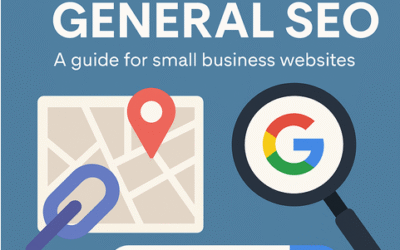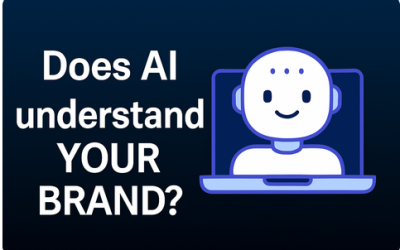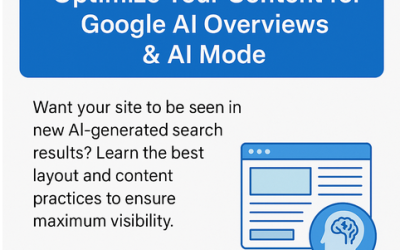Harnessing the Power of AI: Transforming Your Business for the Future

What is AI and Why Does It Matter for Your Business
Artificial Intelligence (AI) refers to the simulation of human intelligence in machines designed to think and act like humans. These systems can perform tasks that typically require human intelligence, such as visual perception, speech recognition, decision-making, and language translation. In the business world, AI is rapidly becoming a game-changer by offering unprecedented efficiency, cost savings, and innovative capabilities.
Businesses across various industries are leveraging AI to stay competitive and drive growth. From automating routine tasks to providing deeper insights through data analysis, AI has the potential to transform how companies operate and deliver value to their customers. For small business owners and corporate executives alike, understanding the benefits and applications of AI is crucial for future success.
Brief Overview of AI’s Impact on Various Industries
AI has made significant strides in transforming numerous industries. In healthcare, AI-powered systems assist in diagnosing diseases and personalising treatment plans. In finance, AI algorithms are used for fraud detection and personalised banking experiences. Retailers use AI to manage inventory, optimise supply chains, and enhance customer experiences through personalised recommendations. These examples illustrate AI’s broad impact and potential to revolutionise various sectors.
What Are The Benefits of AI for Businesses?
Increasing Efficiency and Productivity
One of the primary benefits of AI is its ability to increase efficiency and productivity. AI systems can automate repetitive and time-consuming tasks, allowing employees to focus on more strategic activities. For example, AI-powered tools can handle data entry, manage schedules, and process invoices, reducing the workload on human employees. A study by McKinsey & Company found that AI can boost productivity by up to 40% in some sectors, highlighting its potential to drive significant improvements in operational efficiency .
Enhancing Customer Experience
AI plays a crucial role in enhancing customer experiences by providing personalised and timely interactions. AI-powered chatbots and virtual assistants can handle customer inquiries 24/7, offering instant responses and solutions. These tools can learn from customer interactions, continuously improving their performance. For instance, companies like Amazon use AI to recommend products based on customers’ previous purchases and browsing behavior, resulting in a more personalised shopping experience . This not only improves customer satisfaction but also drives sales and loyalty.
Data-Driven Decision Making
AI excels at analysing large datasets to uncover patterns and insights that would be difficult for humans to detect. By leveraging AI, businesses can make data-driven decisions that are more accurate and informed. For example, AI algorithms can analyse market trends, customer preferences, and operational data to provide actionable insights. This helps businesses optimise their strategies and respond more effectively to changing market conditions. Companies like Netflix use AI to analyse viewer data and make recommendations, leading to higher engagement and retention rates .
Reducing Operational Costs
By automating various processes, AI can significantly reduce operational costs. AI systems can perform tasks with greater accuracy and speed, minimizing errors and reducing the need for manual intervention. For example, AI-powered inventory management systems can predict demand and optimize stock levels, reducing storage costs and minimizing waste. A case study from Deloitte showed that implementing AI in supply chain management resulted in a 15% reduction in operational costs for a leading retailer .
What Are The AI Applications in Business?
AI in Marketing: Personalised Campaigns
AI revolutionises marketing by enabling personalised campaigns that target specific audience segments with tailored messages. AI tools analyse customer data to identify preferences, behaviours, and purchasing patterns, allowing businesses to create highly targeted and effective marketing strategies. For instance, Starbucks uses AI to send personalised offers to customers based on their purchase history and preferences, resulting in higher engagement and sales .
AI in Sales: Predictive Analytics
Predictive analytics powered by AI can forecast sales trends and customer behaviour, helping businesses make proactive decisions. AI models analyse historical sales data and external factors to predict future demand, enabling businesses to optimize their sales strategies. A notable example is Salesforce, which uses AI to provide sales teams with insights on the best leads to pursue and the likelihood of closing deals, leading to increased sales efficiency and success rates .
AI in Customer Service: Chatbots and Virtual Assistants
AI-driven chatbots and virtual assistants are transforming customer service by providing instant support and handling common inquiries. These tools can operate 24/7, ensuring customers receive assistance whenever they need it. This enhances customer satisfaction and reduces the workload on human customer service agents .
AI in Operations: Automation and Streamlining Processes
AI can automate and streamline various operational processes, improving efficiency and reducing costs. AI-powered systems can manage inventory, optimize supply chains, and automate routine tasks such as data entry and scheduling. For instance, UPS uses AI to optimize delivery routes, reducing fuel consumption and improving delivery times. This not only lowers operational costs but also enhances overall efficiency .
How Do You Integrate AI into Your Business?
Assessing Your Business Needs
Before integrating AI, it’s essential to assess your business needs and identify areas where AI can have the most impact. Conduct a thorough analysis of your operations, customer interactions, and business processes to determine where AI can add value. For example, a retail business might focus on using AI for inventory management and personalized marketing, while a service-oriented business might prioritize AI-driven customer support .
Choosing the Right AI Tools and Solutions
Selecting the right AI tools and solutions is crucial for successful integration. Consider factors such as cost, scalability, ease of use, and compatibility with your existing systems. Research different AI vendors and evaluate their offerings based on your specific needs. For instance, a small business might choose a cloud-based AI solution that offers flexibility and ease of implementation, while a larger corporation might invest in a customised AI platform .
Training Your Team for AI Adoption
Successful AI integration requires training and upskilling your team. Ensure your employees understand how AI works and how it can benefit their roles. Provide training sessions and resources to help them become proficient in using AI tools. For example, a company might conduct workshops on AI-powered data analysis tools to help employees make data-driven decisions. This not only improves the adoption process but also maximizes the benefits of AI .
Monitoring and Evaluating AI Performance
Once AI is integrated, it’s important to monitor its performance and evaluate its impact. Set key performance indicators (KPIs) to measure the success of AI initiatives and track progress over time. Regularly review AI systems and make adjustments as needed to ensure they continue to deliver value. For instance, a business might monitor the accuracy and efficiency of its AI-powered customer support system and make improvements based on customer feedback and performance metrics .
AI In Business Examples
Success Story 1: AI in a Small Business
A small retail business implemented AI to manage its inventory and personalize marketing campaigns. By using AI-powered inventory management, the business was able to optimise stock levels, reduce waste, and save on storage costs. Additionally, AI-driven marketing campaigns resulted in higher customer engagement and increased sales. As a result, the business saw a 20% increase in revenue within the first year of AI implementation .
Success Story 2: AI in a Corporate Environment
A large corporation in the financial sector adopted AI to enhance its customer service and streamline operations. By integrating AI chatbots, the company was able to provide 24/7 customer support, reducing response times and improving customer satisfaction. AI-powered data analysis tools helped the company identify market trends and make informed investment decisions. This led to improved efficiency, cost savings, and a competitive edge in the market .
Recap of AI Benefits
AI offers numerous benefits for businesses, including increased efficiency, enhanced customer experiences, data-driven decision making, and reduced operational costs. By leveraging AI, businesses can stay competitive and drive growth in an increasingly digital world.
Encouragement to Explore AI Solutions
For business owners and corporate executives, now is the time to explore AI solutions and harness their potential. Start by assessing your business needs, choosing the right AI tools, and training your team for successful adoption.
Final Thoughts on the Future of AI in Business
The future of AI in business is bright, with continuous advancements and new applications emerging. By staying informed and proactive, businesses can take full advantage of AI’s capabilities and transform their operations for the better.
Frequently Asked Questions (FAQs) about the use of AI in business
- What is Artificial Intelligence (AI), and how does it work in a business context?
- Answer: AI refers to the simulation of human intelligence in machines that are programmed to think and act like humans. In a business context, AI works by using algorithms and data to perform tasks that typically require human intelligence, such as data analysis, decision-making, and customer interactions. AI can automate repetitive tasks, provide insights from large datasets, and improve efficiency and accuracy in various business processes.
- What are the key benefits of integrating AI into my business operations?
- Answer: Integrating AI into business operations offers numerous benefits, including increased efficiency and productivity, enhanced customer experiences, data-driven decision making, and reduced operational costs. AI can automate routine tasks, personalize customer interactions, analyze large datasets for actionable insights, and optimize various business processes to save time and resources.
- How can AI improve customer service in my business?
- Answer: AI can significantly improve customer service by providing 24/7 support through chatbots and virtual assistants, handling common inquiries instantly, and personalizing customer interactions. AI systems can learn from each interaction to continually improve their responses, leading to quicker resolution times and higher customer satisfaction.
- What are some practical applications of AI in marketing and sales?
- Answer: In marketing, AI can be used to create personalized campaigns by analyzing customer data to identify preferences and behaviors. This allows businesses to target specific audience segments with tailored messages. In sales, AI can use predictive analytics to forecast trends, identify high-potential leads, and recommend sales strategies, helping sales teams close deals more efficiently and effectively.
- How can small businesses start integrating AI without a large budget?
- Answer: Small businesses can start integrating AI by focusing on affordable, scalable AI solutions such as cloud-based AI tools and software as a service (SaaS) platforms. These solutions often require lower upfront investments and offer flexibility. Small businesses should identify key areas where AI can have the most impact, such as customer service or marketing, and gradually expand their AI initiatives as they see results.
- What are the challenges of adopting AI in a business, and how can they be addressed?
- Answer: Challenges of adopting AI in a business include high initial costs, lack of technical expertise, and resistance to change from employees. These challenges can be addressed by starting with small, manageable AI projects, investing in training and upskilling employees, and clearly communicating the benefits of AI to the entire organization. Partnering with AI vendors and consultants can also provide the necessary expertise and support for a successful AI implementation.
Image source: Image created by Chat GTP.
Further reading, References & Citations
- Increasing Efficiency and Productivity: Manyika, J., Chui, M., Bughin, J., et al. (2017). A Future that Works: Automation, Employment, and Productivity. McKinsey Global Institute.
- Enhancing Customer Experience: “How Amazon Uses AI in its Business Operations”. (2021). Forbes.
- Data-Driven Decision Making: “How Netflix Uses AI, Data, and Machine Learning to Drive Success”. (2020). Harvard Business Review.
- Reducing Operational Costs: “AI in Supply Chain Management”. (2022). Deloitte Insights.
- AI in Marketing: Personalized Campaigns: “Starbucks’ Personalization Strategy Powered by AI”. (2021). Business Insider.
- AI in Sales: Predictive Analytics: “Salesforce’s AI-Powered CRM”. (2020). TechCrunch.
- AI in Customer Service: Chatbots and Virtual Assistants: “How Bank of America’s AI Assistant Erica is Changing Banking”. (2021). Financial Times.
- AI in Operations: Automation and Streamlining Processes: “How UPS Uses AI to Op
- Assessing Your Business Needs: “A Guide to AI Integration for Small Businesses”. (2022). Small Business Trends.
- Choosing the Right AI Tools and Solutions: “How to Choose the Right AI Tools for Your Business”. (2021). CIO Magazine.
- Training Your Team for AI Adoption: “Training Employees for AI Integration”. (2020). Harvard Business Review.
- Monitoring and Evaluating AI Performance: “Measuring the Impact of AI on Business Performance”. (2021). McKinsey Quarterly.
- Small Business Success Story: “How a Small Retailer Used AI to Increase Revenue by 20%”. (2021). Entrepreneur.
- Corporate Success Story: “AI Transforming Corporate Finance: A Case Study”. (2022). Financial Times.
Author: Ashley Bryan
Recent Posts
- Why and How to Add Testimonials & Reviews to Your Website September 11, 2025
- Local SEO vs General SEO: Why “Plumber Brisbane” Ranks but “Plumber” Doesn’t August 20, 2025
- How to Get Your Brand Name (Not Just Your URL) to Show in Google Search Results August 11, 2025






